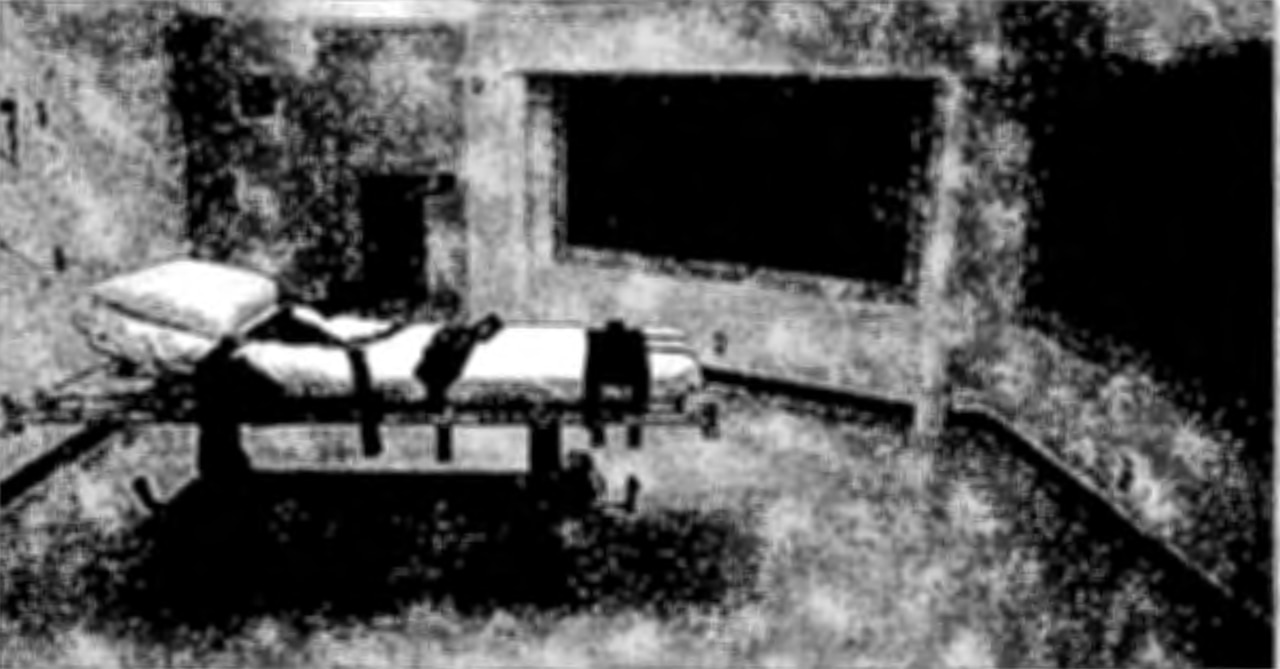Who’s to blame for Alabama’s torture, miserable treatment of prisoners
This is an opinion column.
Maybe it’s too much to ask the state of Alabama to stop killing people.
It’s like asking a dope addict to quit cold turkey. And besides, “right to life” has as much wiggle room around here as “bless your heart.”
So maybe the best we can ask is that the state stop torturing people.
I know, I know. Alabama has a long and illustrative history of killing those who did wrong, or looked wrong when they did it, or looked like they prolly did it.
We used to hang people from trees, because mobs with torches and hoods were convinced some other human had to be the bad guy.
The state figured it was more humane to wait until people were convicted by a jury – though in truth it rarely questioned the racial or ethical makeup of those juries – and in 1927 began to strap convicted killers into a death chair, to wait ‘til midnight and zap ‘em with 2,000 volts of electricity.
Alabama loved that so much it gave its electric chair a nickname – “Yellow Mama.” You probably remember that name, if not any of the 175-plus people killed in it. The furniture got more grace than any of those who sat in it.
RELATED: Why is Alabama so bad at executions?
I remember some. Like Horace Franklin Dunkins, executed in 1989 for the killing of Lynn McCurry. I watched as they hit him with all that voltage. His father watched too, as prison workers scrambled around trying to figure out what had gone wrong. Bad wiring, apparently, didn’t kill him right the first time.
“They’re torturing him,” his dad whispered. Just as they hit him again.
In 2002 Alabama moved on to lethal injection, partly because politicians thought it looked more humane than frying people until their eyes popped out of their head.
That’s the thing about killing people. You tend to come off looking … inhumane.
It should have been a warning – another one – in 2018, when an Alabama prison death squad bungled the execution of convicted killer Doyle Hamm. His veins were shot because of years of cancer drugs and IV drug use, and the prison team stuck and poked him for three hours before giving up. He survived.
On July 28, the state executed Joe Nathan James Jr. for the 1994 killing of Faith Hall. Evidence first reported in The Atlantic details three hours of pain and suffering – beginning before the witnesses or defense lawyers could be present – as the doctors/executioners stabbed him with needles but failed to insert an IV. Ultimately they opted for a painful procedure called a cut down, the details of which are chilling.
We’re just punishing killers, right? Some of them.
Last month Alabama sought to execute Alan Eugene Miller, who was convicted of killing three people. They tried to stick needles in his veins but failed, and finally called it off when time ran out on the death warrant.
What are we doing, Alabama? Who are we, and what do we stand for?
Vengeance? Anger? The wrath of God or the disinterest of Kay Ivey? We can’t keep doing this, condoning this. Not if we hope to continue to see ourselves as the righteous ones.
Because we’re not. Not if we allow humans to be thrown away when they are convicted of crimes, rightly or wrongly. Not as long as we allow them to be “othered,” warehoused in dangerous prisons that rob them of health, dignity and life. Not if we are okay with giving inmates no hope of parole, nothing in the way of rehabilitation, no glimmer of a chance at someday contributing to society.
That the Alabama prison system calls itself the Department of Corrections is a bad joke. It corrects nothing. Especially not its own mistakes.
A lawyer I know told me this week he had lost all hope in Alabama, that the state was mean, and ruined, and bereft of justice.
I tried to argue that there is hope. But I don’t know.
Because we can blame the State of Alabama for misdeeds of all descriptions. We can blame politicians for campaigning on fear and punishment over prevention. We can blame the governor for looking the other way and the attorney general for chasing fame and political points in faraway states. We could blame the prison system for lack of transparency and incompetence.
But in the end Alabama is us.
And too many of us simply don’t care. Or don’t care to look deeply at our state, at our officials, at ourselves or the beliefs that really guide us.
According to Pew Research from 2014, nine out of 10 Alabama grownups believe in God with some certainty, nearly eight out of 10 say religion is important in their lives, and almost nine out of 10 identify as Christians.
They follow that man from Galilee who said concern for those in prison is key to the salvation he promised. That book in which he is protagonist cautions over and over to love and comfort and visit those behind bars, to treat them as what they are: People.
That’s all I ask. That we treat people as people.
Because the way we treat them will define us, more than it defines them.
We are the state of Alabama. So who do we choose to be?
John Archibald is a Pulitzer Prize-winning columnist for AL.com.
